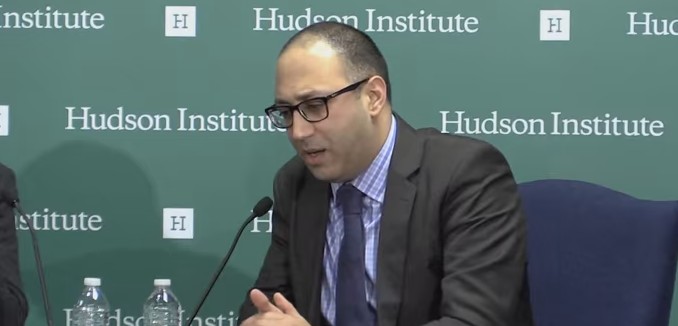The Obama administration’s Middle East policy effectively serves as “legitimization of Iranian spheres of influence throughout the region, especially in Iraq and Syria,” Tony Badran, a research fellow at the Foundation for Defense of Democracies wrote in an analysis for Tablet on Thursday.
Badran observed that President Barack Obama has stated that he intended to break with the “old order” of American alliances in the Middle East, which he viewed as “unsustainable.” “I think there was a comfort with a United States that was comfortable with an existing order and the existing alignments, and was an implacable foe of Iran,” he said in a 2014 interview. If America’s existing allies were scared of an American rapprochement to Iran, Obama added, they would have to “adapt to change.”
Obama’s approach, Badran wrote, has been activelyas looking for Iranian cooperation on regional issues. The Joint Comprehensive Plan of Action (JCPOA), as the nuclear deal with Iran is known, was a means to achieving this end. Secretary of State John Kerry seemed to say as much in an interview last August. “If we can get this deal done, then we’re ready to sit down and talk about the regional issues, and we may be able to work things in different places,” he said.
But where Obama sees a confluence of interests, Badran explained, Iran sees that it has leverage in the region allowing it “to advance its own regional interests,” meaning that it seeks “to overturn the existing order and replace it with Iranian hegemony.”
Badran described the new dynamic:
Iranian impunity is not a function of Iran’s actual military power vis-à-vis the United States. Rather, it emanates from the Iranian understanding that Obama wants to extricate the United States from the region, has no interest in maintaining the old American order, and is therefore willing to recognize Iran’s position at the head of the regional table. Hence, the administration has found itself repeatedly acting as Iran’s lawyer, excusing and justifying its behavior, legitimizing its ambitions, and instead lashing out at old regional allies. These dynamics, which the administration set up in order to cooperate with Iran, were codified in the JCPOA and give Iran substantial leverage to determine the terms of the U.S.-Iranian relationship. Insofar as Obama has made the nuclear deal and cooperation with Iran his signature, legacy-setting policy, the United States must act as Iran’s advocate in the region, lest the deal and the promise of cooperation collapse. Sustaining the deal with Iran and gaining its cooperation in the region therefore requires the United States to downgrade traditional allies like Israel, Saudi Arabia, and Turkey, which are in direct conflict with Iran throughout the region, in Iraq, Lebanon, Syria, and Yemen.
In order to make this new arrangement palatable to Americans who still view Iran with suspicion, Obama has packaged it as part of the fight against extremism, and specifically against ISIS. Badran conceded that if Iran helps defeat ISIS and restores stability to the region, then Obama’s bet will have paid off. But Badran cautioned that relying on Iran is more likely a bad gamble, because there is “no evidence” that Iran will act in a constructive way. Specifically, Badran observed, “One is hard pressed to find any precedent for a forced integration of a revolutionary power with hegemonic ambitions in an existing structure, with which it is in direct conflict, and which it explicitly seeks to overturn.”
Last year, Michael Doran, a senior fellow at the Hudson Institute, presented a history of Obama’s outreach to Iran. Doran observed that the administration believed that the common interests of the United States and Iran “would provide a foundation for building a concert system of states—a club of stable powers that could work together to contain the worst pathologies of the Middle East and lead the way to a sunnier future.”
The New York Times reported in August that members of the administration harbored “grander ambitions for a deal they hope could open up relations with Tehran and be part of a transformation in the Middle East.”
[Photo: Hudson Institute / YouTube ]




